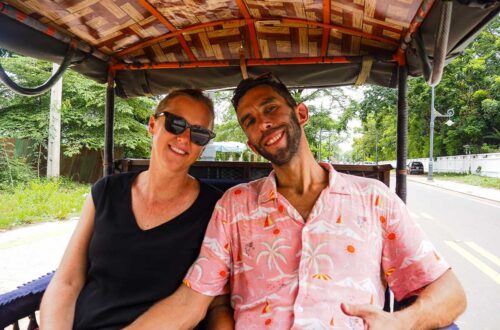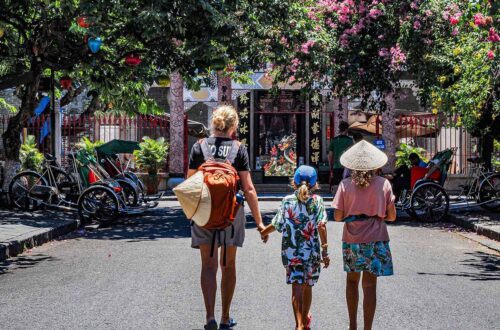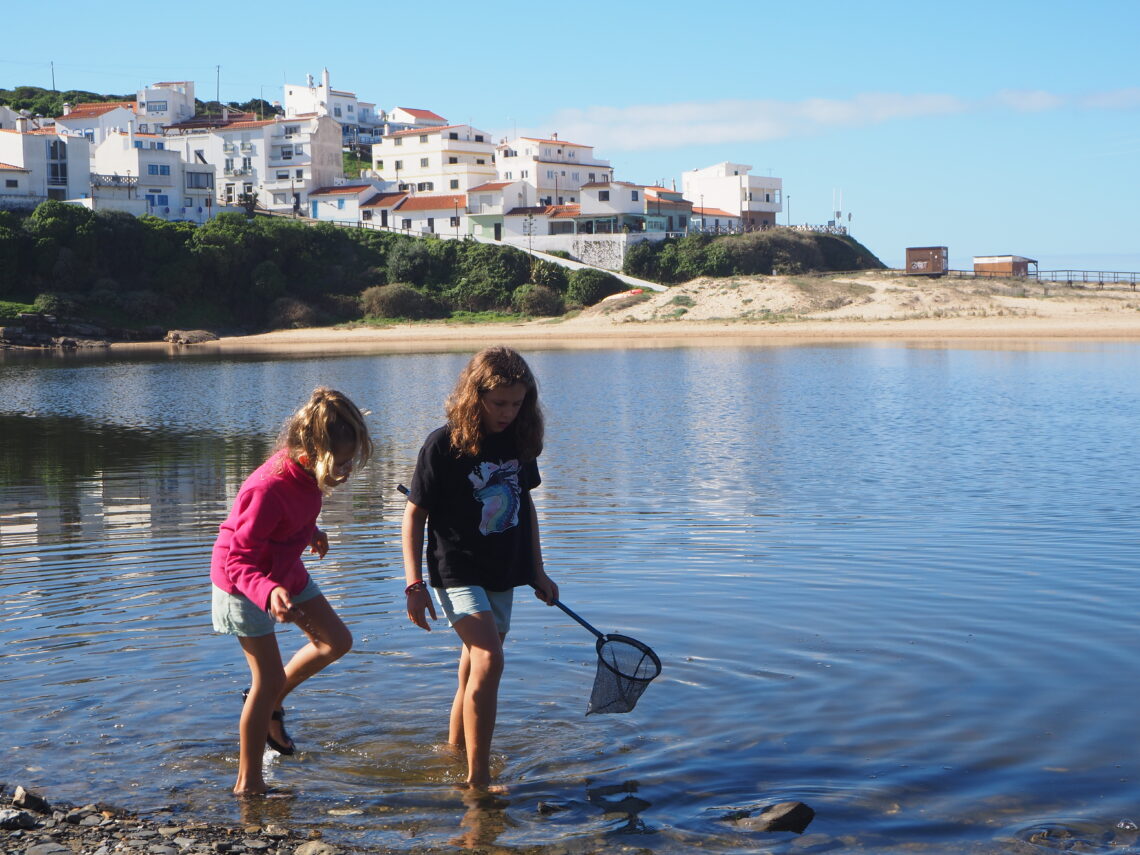
Top Tips for Starting a Worldschooling Life: Budgeting, Planning, Resources
So you now know what exactly worldschooling is (and if not, read this) but how do you know if it will work for you?
Whilst the idea of the freedom and flexibility as a worldschooling family can be liberating for some, it can also feel pretty intimidating.
It’s up to you to make all the decisions on how you will be educating your kids. The scope and range of options is huge, you could be a flying by the seat of your pants kind of family or have a fully developed schedule of activities ensuring all activities have an education activity attached. It could be a combination of both.
The easiest way to get started is to define your priorities.
As former teachers, we had a set idea of making sure our kids didn’t ‘fall behind’ particularly with maths and science. We knew learning opportunities would arise throughout all our travels and we planned to make the most of those with follow up activities.
If travelling as a family, consider the priorities of others. Most importantly, remember that none of this is set in stone. When you begin worldschooling, you have the option to change it, keep what works and change what doesn’t.
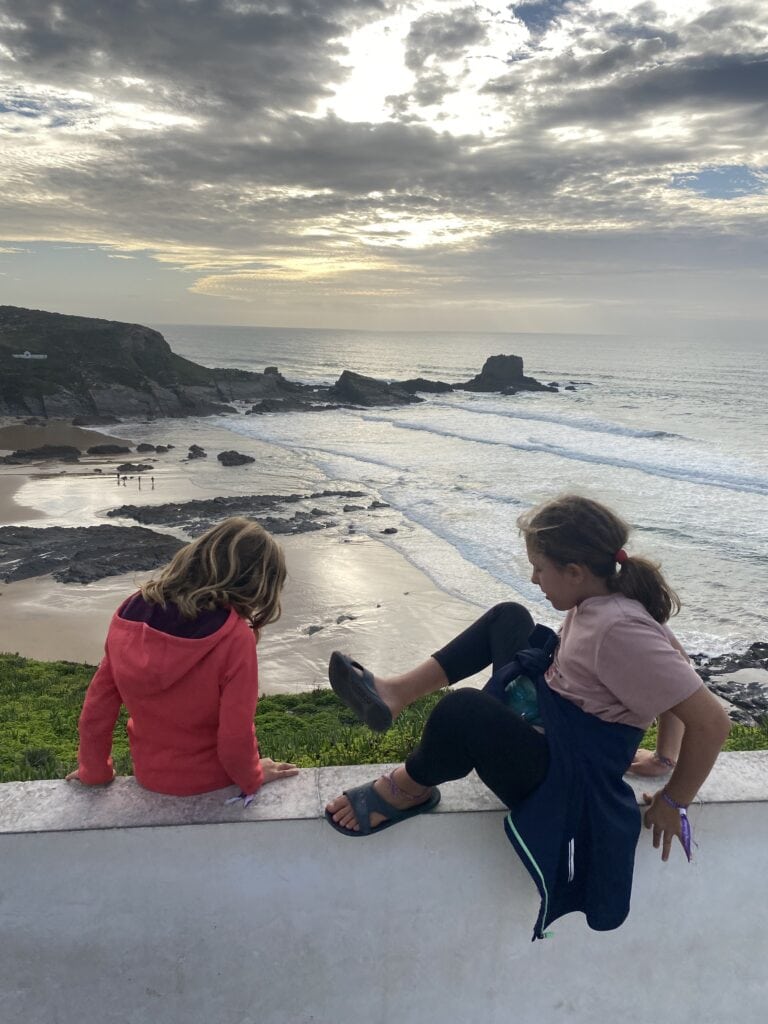
What happens after worldschooling
An important thing to consider when creating your philosophy is what happens after your travels. Are taking your kids out of school for a few months, or planning on continuing to homeschool them when you return?
Returning to school
Some schools and teachers may require students to ‘keep up; with school work while traveling with kids, especially in subjects like maths, as these concepts build on each other. Missing out on key math concepts could make it harder to understand more advanced topics later on.
A good way to keep kids on top of their maths while traveling is to bring along math resources, utilize online learning tools or invest in a tutor.
Reading and writing are also things to prioritise. Speak with your teacher to find out about what objectives or targets they would be trying to achieve and implement them into your learning.
For other subjects, like art, history, science, geography, and health/PE, you can use everyday experiences to teach them in a more organic way. Take them to museums, historical sites, and local markets to learn about different cultures and historical periods. Encourage them to draw pictures, write stories, and explore the outdoors to get hands-on experience with these subjects.
Homeschooling after you return
If you’re intending to homeschool your kids after you return from travel, then you can go at your own pace, and choose a learning style that suits each child. You don’t have to worry as much about ‘keeping up’ as you can follow your own childs next steps and not that of a whole year group.
And if you’re continuing to travel
Then continue to reflect on how things are going and decide what works best for you as a family. We have tweaked our approach many times bo take into account destinations, interests, local opportunities and our own routines. After all, that is one of the huge perks of worldschooling – Flexibility and the chance to do what work best for the whole family.
Find the style which works for YOUR family and off you go again!
Decide your budget for worldschooling
Setting a Realistic Budget
So the big question, how do you afford to worldschool?
First things first, set yourself a budget, and keep it real, overestimate and add an extra 10% on top to make sure you covered everything.
To establish a realistic budget for your worldschooling adventure, consider these key factors:
- Current Income: Evaluate your family’s current income and determine how much you can allocate for your worldschooling expenses.
- Home Expenses: Anticipate and factor in your ongoing expenses at home, such as rent or mortgage payments, utilities, or credit cards..
- Travel Costs: Consider trave costs including flights, accommodations, transportation, and any necessary visas or permits. Remember, the more you move the more you pay.
- Activities and Excursions: You will want to do things and go places, but consider how much you want to spend on things. For example, theme parks are not our thing, luckily, as they usually cost quite a lot…but scuba diving is, so we try and budget that in.
- Emergency Funds: Create a contingency plan by setting aside a separate fund to cover unexpected expenses .
Once you’ve got a good grasp on your financial limits, start exploring destinations that fit your budget. Look for places with a mix of free or low-cost attractions, like museums, parks, and cultural events.
Top Tip!
Join local facebook groups to find out about what’s available for families (search the place and families is a good start).
Research affordable destinations and accommodation
One pro tip for worldschoolers on a budget is to research affordable destinations and accommodations. Some countries are more expensive than others, so it’s important to do your research before booking any flights or accommodations.
*Remember though, consider the cost of the flight and the cost of living. It might cost more to get to Vietnam but your living costs will be very low,or that budget flight to Barcelona may not be that cheap in the longrun.
How to find the best worldschooling destination?
You can read our full post here, but here are some of our favourites so far…
Examples:
- Rome to learn about the Roman Empire
- Thailand to learn about coral propagation and shark protection
- UK to learn about Kings and Queens
These are just some of the more obvious destinations but you can start much smaller.
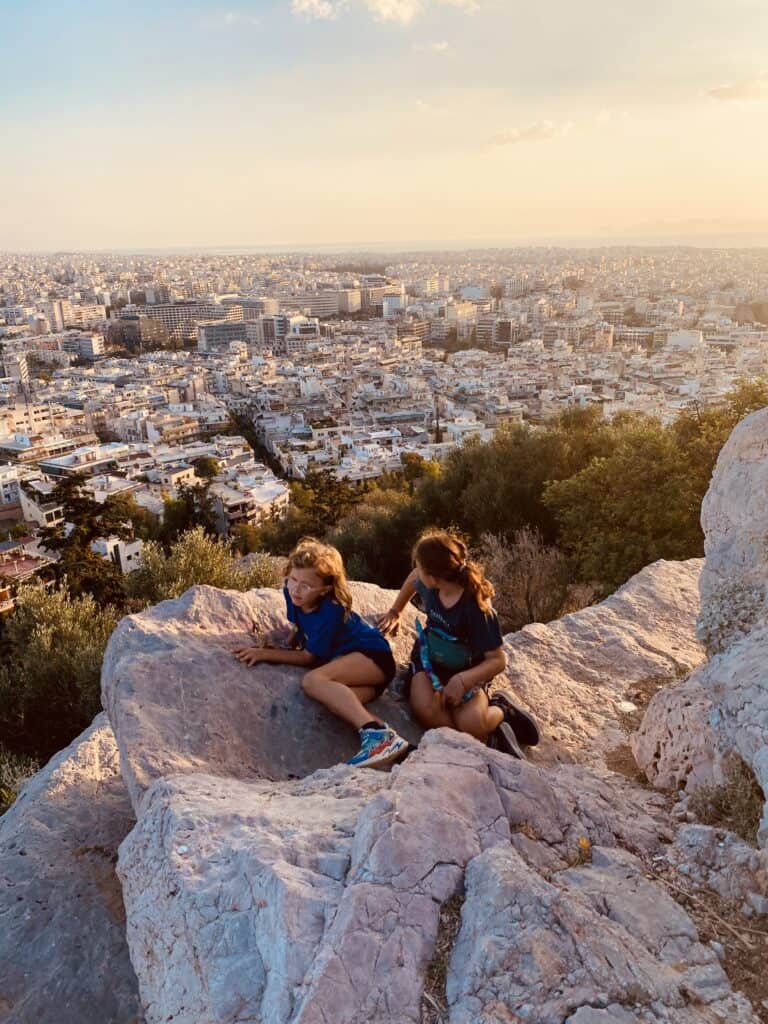
Finding your next worldschooling destination
Here are some questions to help you choose a worldschooling destination for your family:
1. Interests and Learning Goals
- What are your child’s interests?
- What subjects or topics do they want to learn more about?
- What kind of experiences do you want them to have?
- What are your family’s learning goals for this trip?
2. Location and Culture
- Where do you want to go?
- What kind of culture do you want to experience?
- What is the climate like?
- How affordable is the destination?
- What are the travel logistics like?
3. Accommodation and Resources
- What kind of accommodation do you need?
- What resources are available for worldschooling families?
- Are there any schools, libraries, or community centers that offer worldschooling programs or support?
- What are the safety and security concerns for families traveling with children?
4. Practical Considerations
- How long do you want to stay?
- How will you get around?
- What visas or permits do you need?
- How much money will you need?
- What is the healthcare situation like?
Connect with other Worldschooling families for support and tips
Connecting with other worldschooling families is basically your cheat code. They’ve got the lowdown on where to find the best learning experiences, dodge the inevitable potholes, and keep the whole adventure rolling. Join facebook groups such as or consider joining a hub to meet other families.
You can read the full post in the link above but here are some of the hubs we have been to and on our future radar,
Luxor Learning Hub – immersive family adventures in Luxor, Egypt. An unforgettable worldschool destination.
Arctic Terns – Worldschool Bansko – The magic of Worldschooling Bansko lays not in the great range of activities, but in the families coming together, sharing their time together, creating connections, and forming friendships for life.
Worldschool Pop ups – Temporary, mobile, week-long gatherings designed to bring worldschoolers together to develop community and explore our planet. Pop-ups can happen at any location, at any time.
Deliberate Detour (get $200 0ff with the code Boston200) – two and four-week experiences in some of the world’s most beautiful, culturally-rich cities.
Shepherds Rest – A self directed rural Worldschool Community, Oria, Spain.
Create a flexible itinerary to accommodate unexpected changes
Planning is crucial. But consider how much planning you need and how much wiggle room to have.
Unexpected changes are bound to happen when traveling with children. That’s why it’s important to create a flexible itinerary that allows for changes in plans. From having a sick husband in bed with Dengue (thank you Cambodia) to falling in love with a place and wanting to stay longer (hello Lombok!) Having a flexible itinerary will allow you to adjust plans as needed without causing too much disruption.
Don’t try to make every experience a ‘learning experience’
While traveling, you will start to see the learning opportunities everywhere– museums, art galleries, wildlife exhibits, and information centers in every town. But let’s be real, dragging your kids through rows of glass displays or around all the temples can lead to serious information overload. Sometimes, it’s totally cool (maybe even necessary) to skip the local tourist trap and hit up a weekend market or chill at the beach.
Give your worldschoolers (and you) a break, let them soak in what they’ve seen, heard, and experienced.
Trust that the learning is brewing beneath the surface.. And hey, every now and then, be ready for an eruption of newfound wisdom, catching you pleasantly off guard.

Just give it a go.
Our most important tip for worldschooling, just give it a go. Try not to overthink it.
There are some things that are better learned on the go.
One of the best things about world schooling is that you are learning too!

Still have some anxiety about taking the leap into worldschooling?
That is totally reasonable, we all aproach new challenges with varied levels of fear, excitement and curiosity. As The Worldschool Coach; Our mission is to empower families like yours to confidently embark on a journey of discovery, exploration, and learning that suits YOU and YOUR needs.
Join an experienced teacher and worldschool parent to unlock your confidence, gain clarity, unpack resources and strategies to tailor your bespoke educational plan.

Meet the author
Jak is co founder of Boston Tribe Travels. He has lived and travelled abroad for over 15 years with his family. He has taught in International schools around the world as a primary teacher and leader. He now travels full time with his family, worldschooling and coaching other families to follow their worldschool dream.




